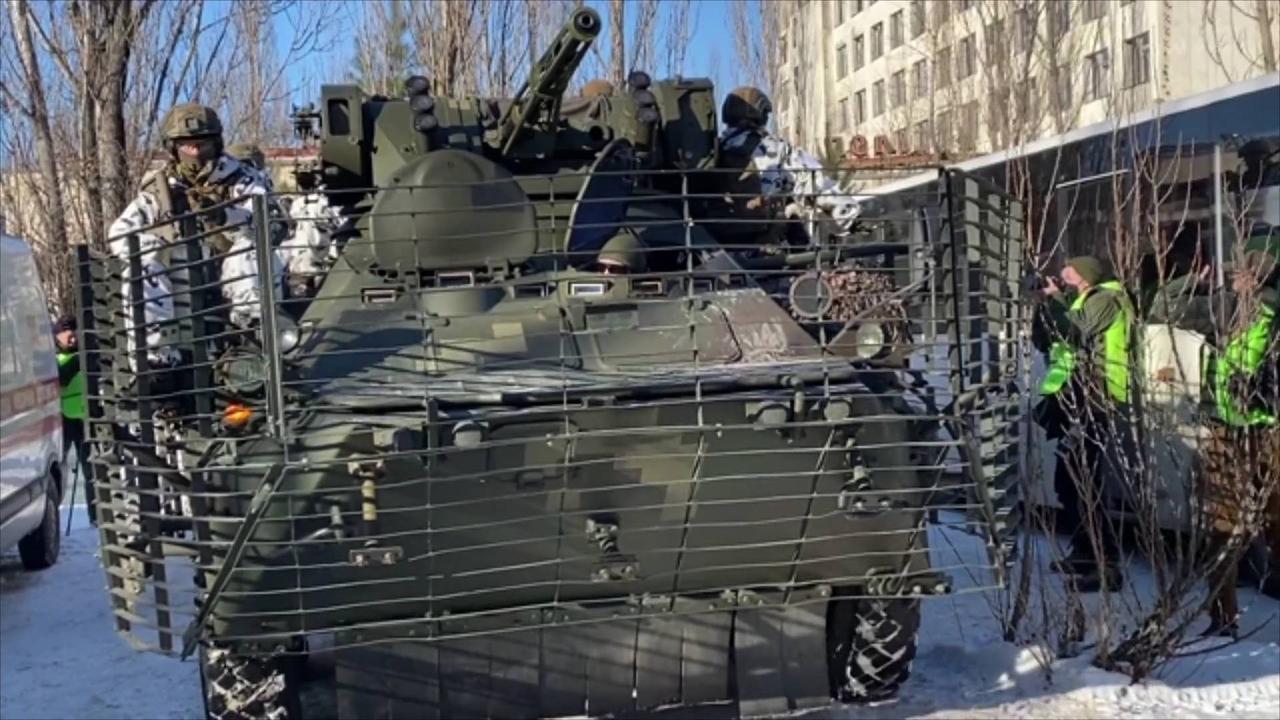
Russia Continues Fighting , for Control of Ukraine's , Donbas Region.
According to 'Newsweek,' mixed reports are coming out of Ukraine regarding Russia's recent military operation in Soledar.
On January 11, Donetsk Oblast Governor Pavlo Kyrylenko told the 'Kyiv Independent' that Russia had failed to take over Soledar, located to the south of Bakhmut.
On January 11, Donetsk Oblast Governor Pavlo Kyrylenko told the 'Kyiv Independent' that Russia had failed to take over Soledar, located to the south of Bakhmut.
Two days earlier, Ukrainian President Volodymyr Zelensky said that the city saw carnage on both sides and claimed that there was "almost no life left.".
Two days earlier, Ukrainian President Volodymyr Zelensky said that the city saw carnage on both sides and claimed that there was "almost no life left.".
However, on January 10, an intelligence report published by the United Kingdom Ministry of Defense (MOD) said that Russia was "likely in control" of most of Soledar.
The mixed reports come after four days of fierce fighting in the Donbas city.
This is one of the best defense strongholds that Ukraine has along all fronts; it was built up in the course of the 2014 Donbas war.
, Mikhail Alexseev, political science professor at San Diego State University, via 'Newsweek'.
Control over Bakhmut gives Russia access to more rapid mass advances, particularly toward Sloviansk and Kramatorsk—the latter being an important industrial center, Mikhail Alexseev, political science professor at San Diego State University, via 'Newsweek'.
Control over Bakhmut gives Russia access to more rapid mass advances, particularly toward Sloviansk and Kramatorsk—the latter being an important industrial center, Mikhail Alexseev, political science professor at San Diego State University, via 'Newsweek'.
Russia's Ministry of Defense has denied that Soledar has been taken over, adding that "fighting is ongoing.".
Overall, these operations indicate that the Kremlin intends to keep fighting and keep gaining advantages with the force of numbers, Mikhail Alexseev, political science professor at San Diego State University, via 'Newsweek'.
This is the kind of strategy that the Kremlin could see lasting many months, if not years, whereby it retains the already occupied territories and keeps slowly occupying new ones, Mikhail Alexseev, political science professor at San Diego State University, via 'Newsweek'


